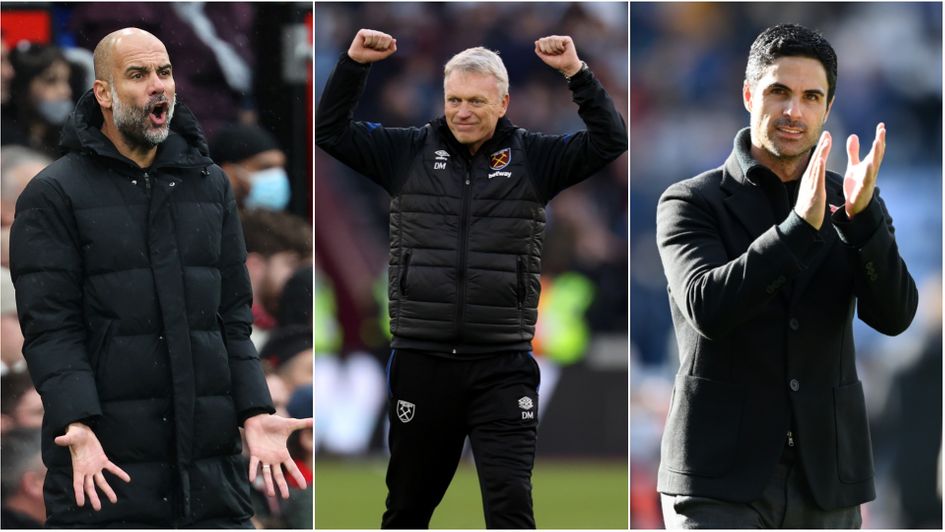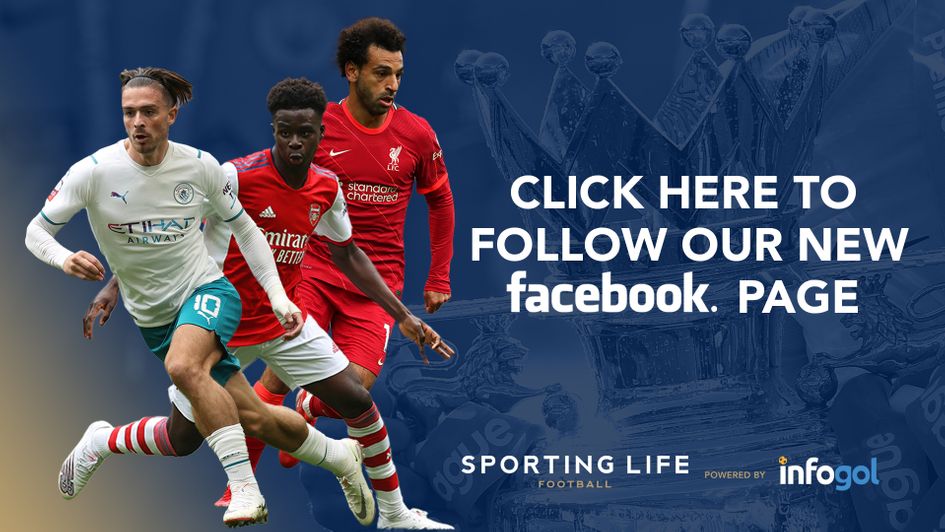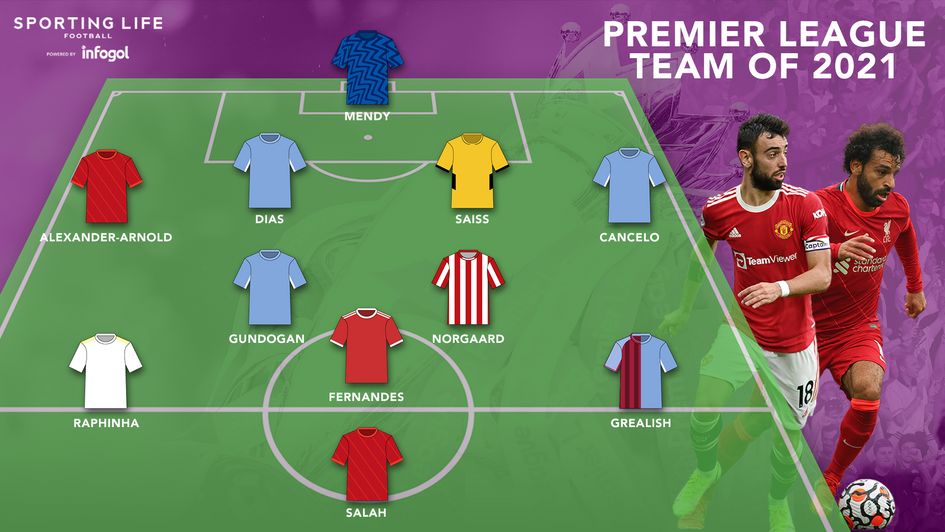Alex Keble picks out his top Premier League managers from 2021, ranking them from fifth to first as well as analysing the tactics that have brought them success.
- Published before Boxing Day fixtures, stats correct up to that date.
5. Mikel Arteta
This is a controversial pick considering how flaky Arsenal can look, considering how dodgy their form can be and how weirdly meek they seem to become for long stretches at a time.
But Mikel Arteta has quietly had a very strong 2021 in which his project has come together in terms of performances, results, and player recruitment.
The calendar year table from January 1 through to Christmas Day has them fourth, the same position they will hold in the current 21/22 league table; for a team disintegrating rapidly over the last few seasons, Champions League form is a huge achievement.

Summer signings Aaron Ramsdale, Ben White, Martin Odegaard, and Takehiro Tomiyasu have given Arteta the pieces he needed to finally enact his Guardiola-inspired tactics, which until recently only emerged in fits and bursts.
Such intelligent football, with an appreciation for space and line-splitting passes, is only possible with the right kind of players and it is to Arteta’s credit that he has stuck to the system.
If they can just sort out how to remain committed to their manager’s philosophy after taking the lead, instead of fearfully retreating, then a top-four finish is in their grasp.
And yet even this criticism isn’t particularly fair. When you look back on their fixtures over this calender year it’s pretty simple: they beat the teams who are worse than them and lose to the three or four teams who are better.
Is that flaky? Or are we still adjusting to the idea that Arsenal are not of a title-winning standard anymore?
4. Graham Potter

The disconnect between Brighton’s performances and their ability to score goals, between their xG and their actual G, is so well documented it has moved into parody.
But there is good reason to keep talking about it, because if Potter had not been pipped by Aston Villa to the signing of Ollie Watkins in the summer of 2020 then Brighton would most likely have come sixth last season – and would be pushing for the Champions League in 2021/22.
The sophistication of their football and their chance creation versus their defensive record is genuinely extraordinary for a club of their resources.
Even with their goalscoring concerns Brighton have a points-per-game record of roughly 1.3 this calendar year, far exceeding what you would expect from the quality of the players.
Recent performances have dropped off a lot, however, and Brighton are unlikely to rise into the top ten without signing a proper finisher.
The board ought to move heaven and earth to do so, because it won’t be long before one of the big clubs comes in for Potter.
3. Thomas Tuchel
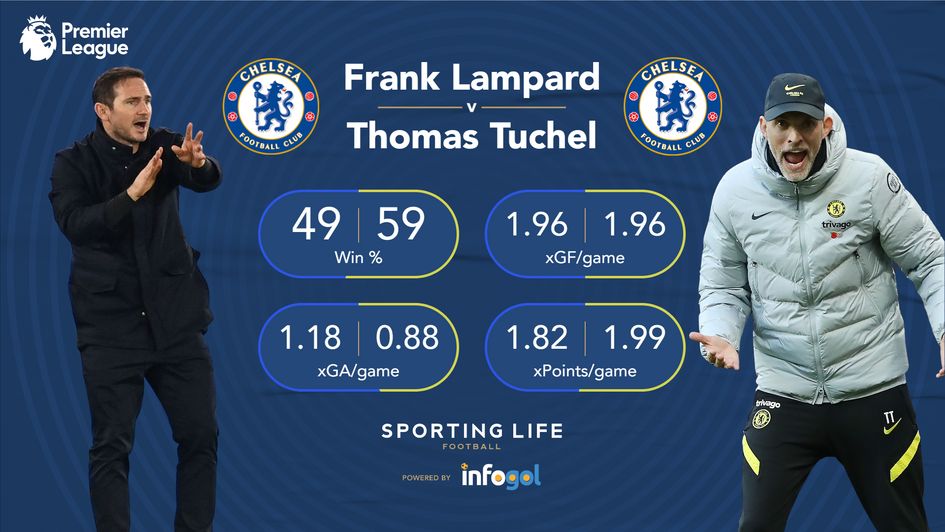
A recent dip in form, owing primarily to the loss of Romelu Lukaku and N’Golo Kante but also reflecting a growing need for Tuchel to move away from a slightly stifling 3-4-2-1 formation, should not detract from what has been an exceptional first 11 months as Chelsea manager.
The Champions League triumph means he is already one of the club’s most successful coaches and yet there is a clear sense that this is just the beginning.
After all, we ought to remember that Chelsea are still well ahead of schedule.
When Frank Lampard was sacked in January they were 11 points behind the league leaders at the half-way stage and looked to be years away from a title challenge.
Under Tuchel they are in the mix and battling hard alongside two of the greatest managers English football has ever seen.
The speed with which Tuchel got his ideas across was remarkable.
🤯💪 If Chelsea's performances under Thomas Tuchel were replicated over a full season, the Blues would be the best defensive side Infogol has ever seen since 2014/15.
— Sporting Life Football & Infogol (@InfogolApp) May 10, 2021
👀 Get the full latest analysis in @JAKEOZZ's preview of their clash with Arsenal 👇
The positional diligence of his 3-4-2-1, with short distances between players and constant rotation among the forwards, has given Chelsea a variety that keeps opponents guessing – and ensures they have superb width and depth across the pitch.
His use of Reece James, these days playing almost like a central midfielder, has been particularly compelling, while the reintroduction of Ross Barkley and Ruben Loftus-Cheek this season speaks to his capacity as a coach; the system is so well-drilled anyone can seamlessly drop in and out.
Even if Chelsea finish third this season they will have made enormous strides back towards the top of the division, and that is all thanks to one man.
2. David Moyes
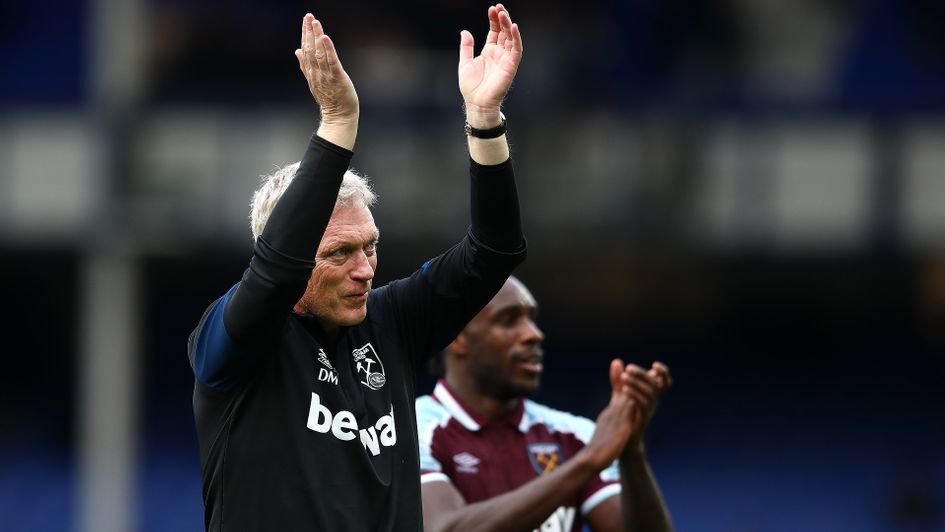
Did anybody see this coming?
West Ham United have arguably benefited the most from the peculiarity of 2021, using the time away from the fans at a toxic London Stadium - and the chaotic tactical period of pandemic football – to create a lasting model of success under David Moyes.
Their performances from January 1 to the end of last season put them third in the form table, and despite fans returning they have carried on seamlessly. The off-and-on-again reset has changed everything.
Moyes is an anachronism in the modern game, one of the few Premier League managers left who plays reactive counter-attacking football.
There is a simplicity to the system, in which West Ham sit back and absorb pressure before hitting on the counter-attack through familiar sources – Declan Rice carries the ball, Jarrod Bowen and Pablo Fornals scurry into space between the lines, and Michail Antonio runs in behind – to make the tasks easily repeatable.
But that does not mean West Ham are defensive as such. They hold firm in a midblock, pressing in the middle of the pitch and refusing to drop into their own third unless up against one of the ‘Big Six’.
In fact, whether it’s their excellent set-piece record, the powerful combination of Rice and Thomas Soucek, or the full-backs bombing on, Moyes’ West Ham might be direct but they are not boring. This is well-organised football, but it is also thrilling stuff.
1. Pep Guardiola
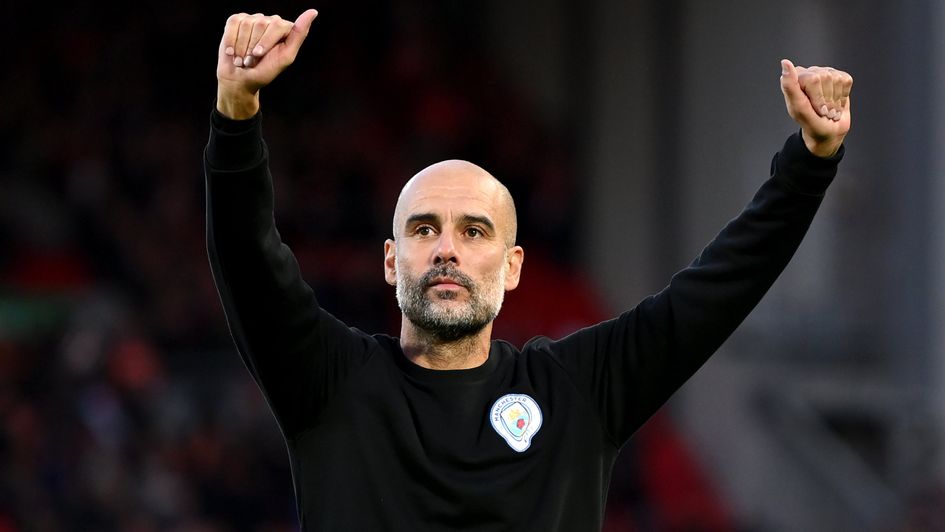
Guardiola eases into first place on this list.
Up until now it has looked as though this period of Premier League history would be remembered for the Guardiola-Klopp rivalry, and yet should Manchester City lift the trophy again it will be four in five years; a period of sweeping domination to match anything Sir Alex Ferguson managed over a half-decade.
The tactical story of their year has been quietly intelligent adaptation to the pandemic.
On December 31 last year City were eighth and floundering, ending the calendar year with 66 points from 32 games. Twelve months later and they have broken the record for the number of wins in a single year, amassing well over 100 points.
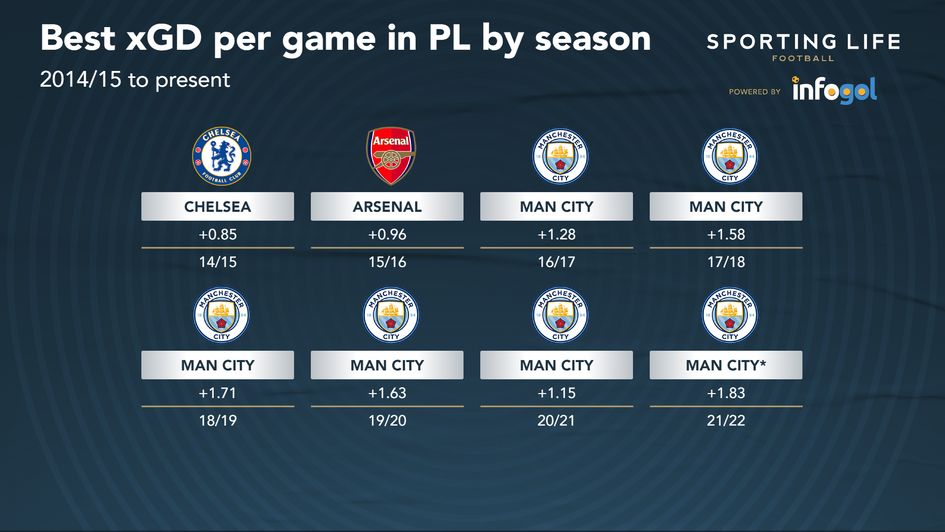
Guardiola slowed everything down, recognising the unique challenges of playing in empty stadiums and through the brain fog.
City ground teams into submission, easing up on the press and controlling the chaos, and yet just as impressive is how they have adapted straight back – raising the tempo in 2021/22.
Things remain occasionally too static, hence the goalless games against Southampton and Crystal Palace, but generally this team has a knack for individuals taking it in turns to go through a purple patch.
To think all of this has been done without Kevin de Bruyne hitting the heights in 2021 and with club-record signing Jack Grealish yet to settle.
Things will only get better in the new year.






